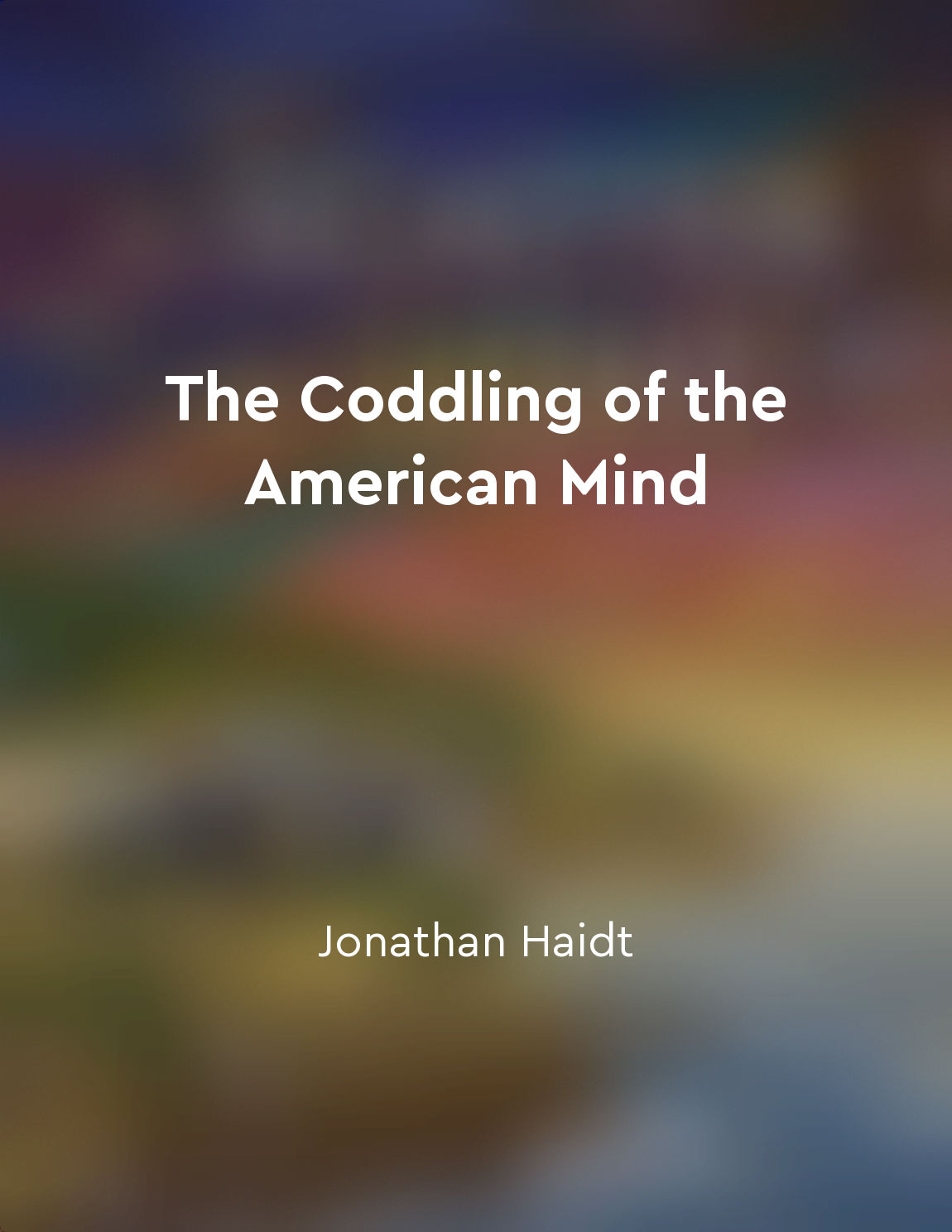The erosion of trust in experts leads to policy failures from "summary" of The Death of Expertise by Thomas M. Nichols
When trust in experts dwindles, a vacuum is created in which knowledge and expertise are no longer valued. This erosion of trust leads to a breakdown in the ability to accurately assess information and make informed decisions. This phenomenon is reflected in the realm of public policy, where decisions are made based on ideology and emotion rather than evidence and expertise. Policy failures are a direct result of this erosion of trust in experts. When policymakers and the public disregard the advice of experts in favor of their own opinions, the consequences can be detrimental. In the absence of expert guidance, policies may be poorly designed, ineffective, or even harmful. The erosion of trust in experts also has broader societal implications. It contributes to a culture of anti-intellectualism, where expertise is dismissed as elitist or irrelevant. This devaluation of knowledge undermines the foundations of a functioning democracy, where informed decision-making is essential for the common good. Furthermore, the erosion of trust in experts perpetuates a cycle of misinformation and ignorance. When expertise is not respected, misinformation can spread unchecked, leading to confusion and division within society. This lack of trust in experts can also have a chilling effect on those who are knowledgeable, discouraging them from sharing their expertise and contributing to public discourse.- The erosion of trust in experts is a dangerous trend that undermines the very fabric of society. By devaluing expertise and dismissing the advice of experts, we risk making decisions that are not based on facts or evidence. This can have far-reaching consequences for public policy, social cohesion, and the overall well-being of society.
Similar Posts
Public opinion can be influenced by emotion
In public opinion, emotion plays a significant role in shaping people's perceptions and beliefs. Emotion has a way of clouding ...

Encouraging resilience in students is key to their future success
Encouraging resilience in students is essential for preparing them for future challenges and successes. Resilience is the abili...
Likable individuals are more likely to gain favor and influence over others
One of the key principles explored is the idea that individuals who are perceived as likable have a greater ability to sway oth...
Critical thinking skills are essential in evaluating expertise
In a world where information is readily available at our fingertips, it is increasingly important to possess the ability to thi...
Democracy thrives when reason is valued and prioritized
Reason is the foundation upon which democracy stands. It is the bedrock of our society, the guiding force that allows us to mak...
Intelligent people underestimate stupid individuals
Intelligent people often make the mistake of underestimating stupid individuals. This is due to the fact that intelligent peopl...

Economic policies must prioritize the needs of all members of society
In a truly affluent society, economic policies should not be designed solely for the benefit of a select few. Rather, they must...
Citizens must engage with experts to make informed decisions
In a complex and rapidly changing world, citizens are confronted with a multitude of issues that require informed decision-maki...
We are more knowledgeable together than we are alone
One of the key insights put forth in "The Knowledge Illusion" is the idea that our individual knowledge is limited and often in...

